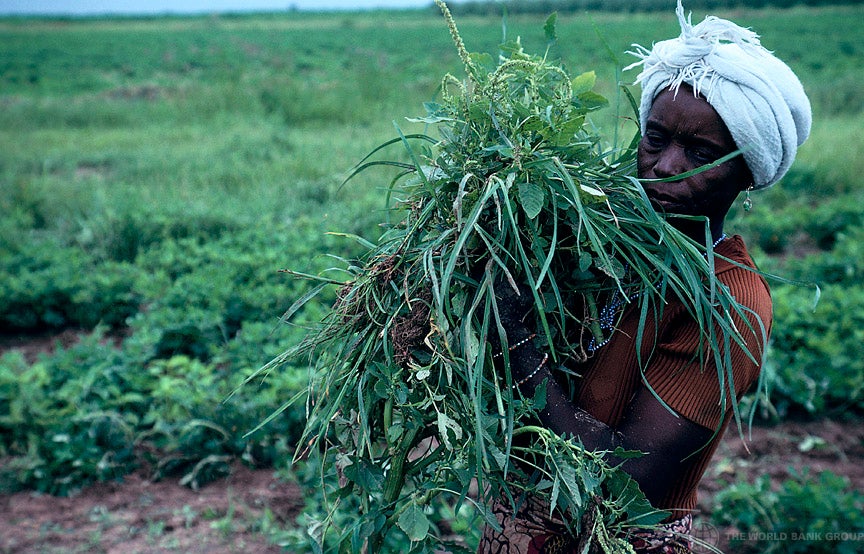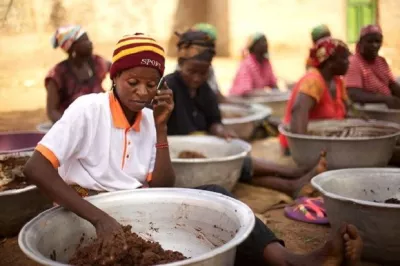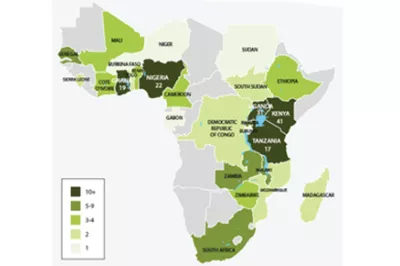Client Registration: The Blind Spot in Agricultural Insurance
Insurance providers that serve smallholders have good reason to be optimistic. Strong value propositions and recent innovations in index-based products are contributing to growth in smallholder insurance coverage. But many insurance providers who offer genuinely useful services are facing the same challenge: Smallholders simply aren’t signing up. This problem is often rooted in how providers register customers rather than in the products themselves.

Insurance provider PULA is a good example of this situation. When PULA launched its index-based insurance product for Nigerian smallholders, it had every reason to think that farmers would sign up in droves. The product allowed smallholders to insure their seeds, fertilizers and other inputs so that they could recoup their costs if there was a bad crop — a clear benefit in the face of shocks like pests, disease and poor weather. Smallholders could register from anywhere with their mobile phones. Best of all, the insurance cost them nothing, because PULA’s input distributor partners had agreed to absorb 100 percent of the premium costs to differentiate themselves from competitors. Yet when PULA launched the product, just 20 – 30 percent of smallholders registered. What was holding customers back? As PULA discovered, the culprit was a registration process that didn’t inspire trust in the service.
PULA’s registration process was designed to be simple. PULA delivers its product by entering into commercial agreements with input companies and their distribution agents so that each bag of inputs sold includes policy registration instructions. Any smallholder who purchases an input bag can follow those instructions using a cellphone to register for coverage and provide information about their farm location. Registration is a critical step because it enables insurers to identify the person who bought the input bag and indemnify that person in case of a loss determined by the index-based insurance offered.
However, PULA’s research showed that registration was not as simple in practice. Because customers had to go through several steps on their phones, they found the registration process to be cumbersome. More importantly, research showed that customers wanted more than simplicity. Most agents and smallholders hesitated to sign up for the insurance after simply reading about it. And input agents, who are often trusted, face-to-face sources of information, did not make enough of an effort to explain the product. PULA often told agents that, by informing customers that their input purchases were insured, they were likely to increase sales, but this proved to be an inadequate incentive.
Eager to improve the long-term sustainability of their businesses, PULA and its partner input companies piloted a new registration process in summer 2018 in the Nigerian states of Kano and Kaduna. PULA boosted its registration rate to 96 percent in a pilot with 60 agents, who enrolled 909 smallholders and sold 159 metric tons of insured fertilizer. It did this by making three changes to its distribution strategy.
Provide tiered incentives to input agents
PULA knew that smallholders considered input agents to be their most trusted source of information on agricultural products and services, but the low registration numbers showed that more work needed to be done to find the right incentives for agents to register more customers. Agents were segmented into four categories. PULA offered each segment a different commission, with the highest commissions going to small agents in remote areas who are closer to smallholders.
Agent Commissions |
5 Naira +
2 Naira per bag registered by roaming agent under management
Source: PULA. One Naira is currently approximately US$0.002 |
Enable a facilitated digital registration process
The commission per registered bag shows that just a small monetary incentive was enough to ensure a huge alignment of incentives by agents. At 5 Naira per bag, the commission would be roughly US$10 for every 1,000 bags. In addition to incentivizing agents to market the product, these commissions strengthened the input companies’ relationship with its agents because agents viewed the additional benefit as coming through the input company. This in turn made the input companies more willing to share their agent networks with PULA.
PULA introduced two registration options for customers beyond self-registration on a mobile phone. The first was to enroll verbally through an automated call received from a call center. The second was to enroll through an input agent who uses his or her smartphones and a PULA app to register the customer. The latter requires the input agent to record the client’s information and scan a QR code on the input bag to register it. As part of the pilot, PULA lent smartphones to agents who did not have them. Customers clearly preferred face-to-face interaction with agents. Only 2.3 percent of farmers registered using the call center, and zero farmers chose to self-register using their cellphone. The overwhelming majority (97.6 percent) chose to register with the help of their input agent.
Leveraging digital technology to mainstream registration steps
Smartphones are common among input agents in Nigeria but not common enough to ignore those who do not have them. Therefore, as part of the PULA pilot, smartphones were lent to input agents who needed them. This was an important incentive for agents because they could use the phone for other purposes. After the pilot, PULA was able to retrieve the phones, which indicated that the agents valued their relationship with PULA. PULA used a client-centric approach to design the app, building on many lessons learned on how to improve the client’s digital onboarding experience.
Lessons from this registration experiment represent significant progress in the journey toward enabling higher registration rates in smallholder insurance. The focus is now on ensuring this innovative registration strategy is economically feasible as providers like PULA scale their operations.




Add new comment